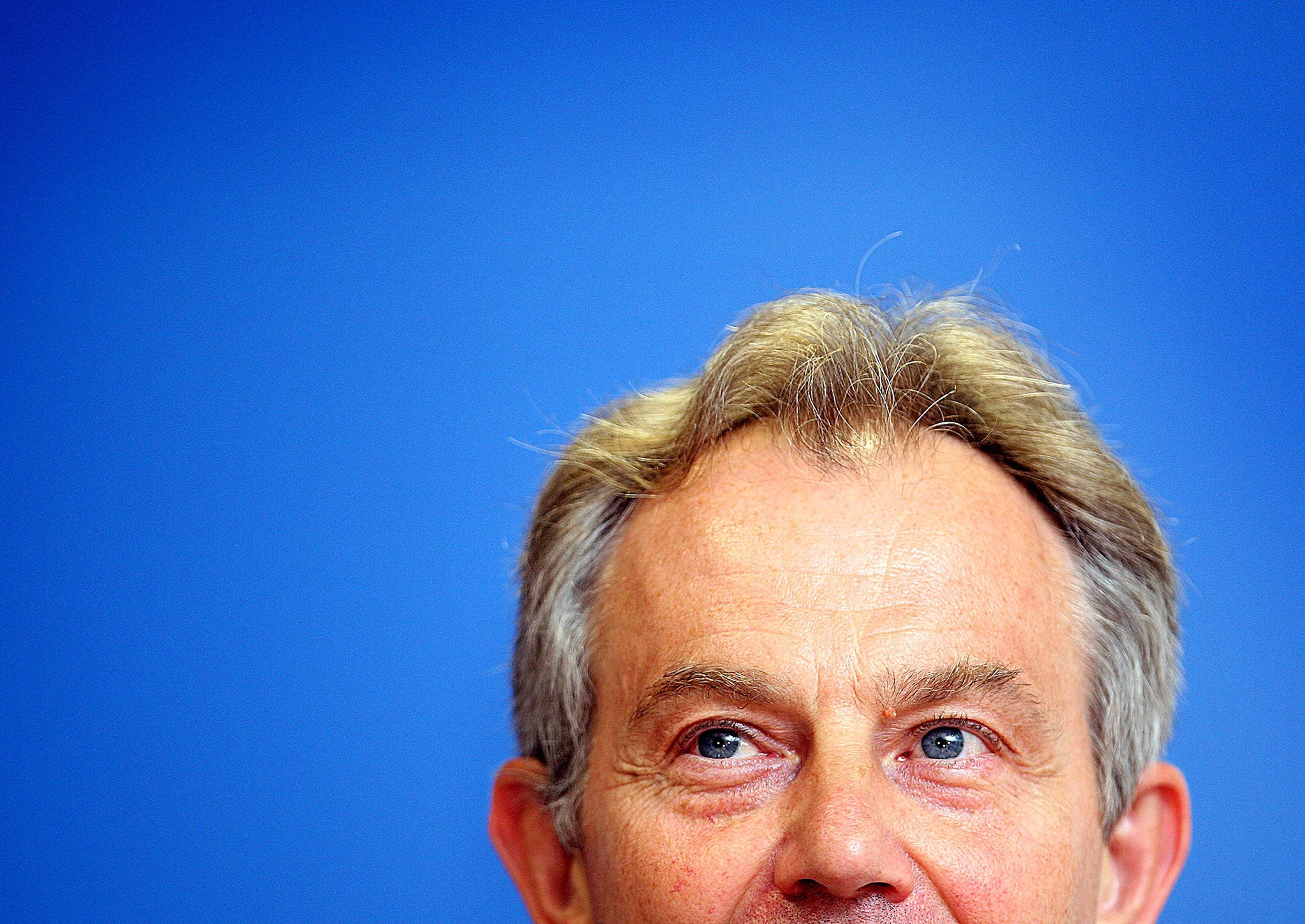Tony Blair has done more for LGBT rights than any UK politician. Whatever your politics, he's a gay icon
Before Blair came to power I was a young man living in fear, with no legal recognition of my sexuality

With the news that Tony Blair has just been named as one of the UK's top gay icons of the last 30 years by the Gay Times, you might be scratching your head. After he was awarded “Philanthropist of the Year” at the GQ Awards, it might seem like just another audacious PR stunt pulled off by a magazine. But if you’re one of these sceptics, then I urge you to put your doubts to one side for a moment, and let me explain why it makes perfect sense.
I was 12 years old when Tony Blair won his first landslide election. I was increasingly unsure of my sexuality but also absolutely sure that Great Britain was not a great country in which to be gay, bisexual or transgender.
At that time, accepting my sexuality meant giving up the opportunity to have it recognised by the law. It meant giving up on the chance to have a family. It meant growing into puberty knowing that I wouldn’t be allowed, legally at least, to have sex for years after my friends. It meant thinking my love was second rate.
Section 28 forced my school to not "promote homosexuality". While individual teachers were brave enough to ignore this and offer support, their efforts and ability to talk about lesbian, gay and trans issues were stifled.
It meant following my Dad into the military would be closed off to me. I was in no doubt that lesbians and gays weren’t allowed to be there. They had to deny their true identities, and lie about who they were.
In short, in 1997 it meant looking to a future of inequality. A marriage and family denied. My schooling difficult. Job prospects curtailed. Fear to be the norm.
By the time Blair resigned a decade later, the final pieces of full equality in law were within touching distance. I was out and I was proud. I could be free to be me.
Blair oversaw a greater jump forward in LGBT equality and human rights than in any other period in history: civil partnerships; the right to adopt; an equal age of consent; the repeal of section 28; ending the ban on LGBT people serving in our armed forces; new laws on hate crime and the Gender Recognition Act. This list alone makes it hardly surprising then that Gay Times would award Blair the accolade of Gay Icon.
However, looking back, it is clear that it wasn’t just the legal reforms that make his legacy. He was brave and bold: he used the rare Parliament Act to ensure the equal age of consent for example. He was also a superb communicator: leading and shaping public opinion bringing about a sea change in public attitudes to LGBT people. He had forged a fairer, more inclusive society and laid the foundations for subsequent progress.
Like Blair, Ed Miliband has a strong and personal commitment to LGBT equality. While more Tories voted against same sex marriage than for it, Ed secured Labour’s support – which in the end was crucial. While the majority of Tory MPs voted against the bill, only nine per cent of Labour MPs decided to join them on the wrong side of history.
Just this week, in his last party conference speech before the next General Election, Miliband put front and centre an announcement that the activist and former MEP Michael Cashman would be his International LGBT Rights Envoy. Miliband also has an ambitious policy platform ranging from compulsory sex and relationship education to closing legal loopholes on hate crime and further action on trans equality.
However, in the coming months Miliband must focus on communicating all of this in a way that engages with the wider public and, like Blair, brings the whole country with him. He will need to make the case that he is building on Blair’s legacy and advancing equality in Britain for LGBT people to the benefit of everyone.
Tom Burke is National Co-Chair of LGBT Labour, the Labour Campaign for Lesbian, Gay, Bisexual and Trans Rights.
Join our commenting forum
Join thought-provoking conversations, follow other Independent readers and see their replies
Comments
Bookmark popover
Removed from bookmarks